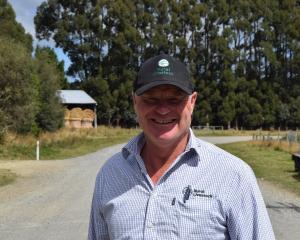
The diversified company has also signalled it is looking to transfer its meatworks robotics further afield from boning lamb, into other species such as beef, pork and poultry.

Scott's acquisition cash war chest of more than $40million has been whittled down to $12.5million cash, which is earmarked as spent, with deferred settlements due on its European and US purchases.
In an interview, Scott's chairman Stuart McLauchlan said of the overall 37% increase in revenue, 14% was normal business operations.
The 23% balance was from the revenues of Belgian acquisition Alvey, a warehouse automation company bought for $19.3million, and Transbotics in North Carolina, US, an automated warehouse vehicle supplier, bought for $4.87million.
"The last 12 months has been acquisitions and the next year will be settling them in ... and rebuilding the [cash] war chest," Mr McLauchlan said.
Craigs Investment Partners broker Peter McIntyre said it was "a solid result across the board" and the acquisitions had boosted both revenue and the bottom line.
He said shareholders may be disappointed the dividend, at 10c, was unchanged from last year, but the company had used its cashflows and cash reserves to boost growth.
"Scott's outlook is strong, very positive for the next 12 months, which should benefit shareholders in the long run," Mr McIntyre said.
On the question of any shareholder disappointment, Mr McLauchlan said strong cashflows meant shareholders could expect "rewards to accrue".
Scott's mainstay for decades has been its manufacturing appliance production lines, but through in-house research and development and several acquisitions, it has diversified into meat industry robotics, semiconductor electromagnets and sampling devices for the mining sector.
Its meat processing and mining divisions this year both made more than double-digit growth, while its appliances division growth was 56% up on a year ago.
Mr McLauchlan said several large appliances projects were sold or worked on during the year, with collaboration from operations in New Zealand, Germany and China.
He said it was a "significant move" for Scott to take its robotics division towards other-species processing.
"Lamb is a small part of the protein market, while poultry and pork are huge."
He was asked about the influence on that decision of majority shareholder JBS, which is a global player in the pork sector.
"Yes, we have opportunities with JBS to better understand the [poultry-pork] market, but also with others," he said.
Last financial year Scott posted a strong full-year result, with revenue up 18% to $132.6million and before-tax profit up 35% to $14.9million.
Mr McLauchlan said yesterday the company "still has an eye out" for further acquisitions, but confirmed no negotiations were under way.
Brazilian food giant JBS took a 50.1% stake in Scott in April 2016, in a deal worth more than $40million, which allowed Scott to pay off all debt, leaving $25million in the bank.
At the August balance date last year Scott had $26.7 million cash in hand and no debt.
Scott recently began an up-to-$3million expansion of its Dunedin workshops, adding an additional 1500sqm of workspace and up to 800sqm of office space.
This week Scott was the only Southern company to make it into the annual top 10 list of the Technology Investment Network's "companies to watch" this year.















